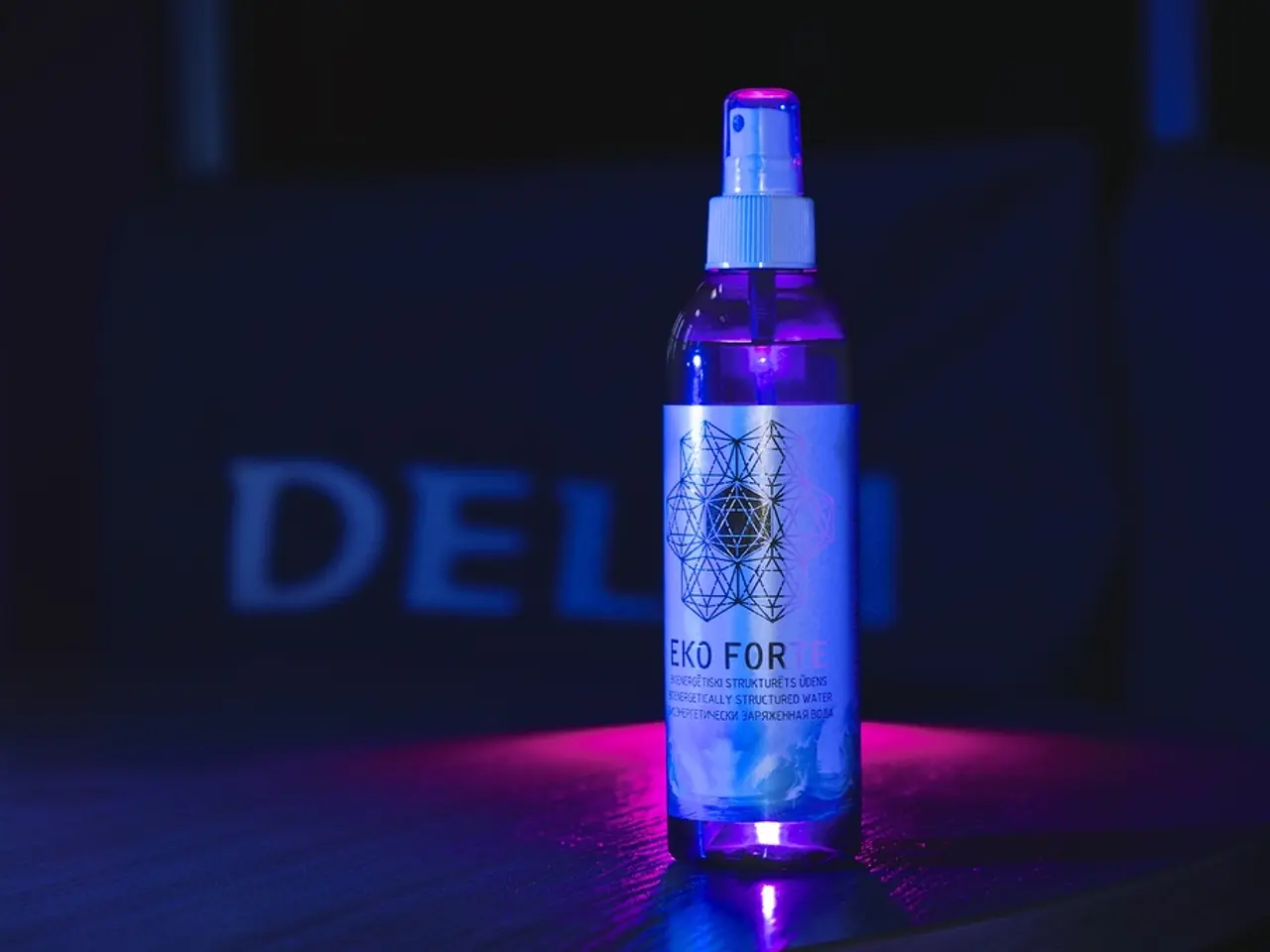Eczema treatment with apple cider vinegar: Understanding its mechanism and applications
Eczema, a common skin condition characterised by dry, cracked, and itchy patches, affects millions worldwide. In the quest for effective treatments, apple cider vinegar (ACV) has emerged as a popular home remedy. However, the scientific evidence supporting its use remains limited and inconclusive.
While ACV has been noted for its antibacterial and antifungal properties, which could potentially aid skin health by reducing pathogens, its application in eczema treatment is not backed by robust scientific studies. A study suggested that soaking in a bath with ACV might help prevent irritation and inflammation due to chemicals in tap water, but further research is needed to confirm this[1].
One of the suggested uses of ACV for eczema is through topical application. Some believe it can help heal eczema by rebalancing the skin's acidity levels and reducing the risk of infection. However, it's important to note that ACV can be irritating to the skin, especially if applied undiluted or to sensitive areas. It is essential to dilute ACV with water before applying it topically to avoid irritation[3][4].
The safety of using ACV for infants and babies has not been established. It is advisable to consult a doctor before using ACV for eczema, especially in the case of children.
While some people may use ACV as a home remedy for skin issues, its effectiveness and safety for eczema treatment are not well-supported by scientific evidence. In fact, there is no definitive scientific evidence that proves ACV is effective in treating eczema in humans. In some cases, its use may even cause irritation, which could exacerbate the condition[4].
Despite the lack of conclusive evidence, ACV can be used in a warm bath, wet body wrap, or as a hair mask to treat eczema. It's important to remember that home remedies, moisturizers, and medications may help manage eczema symptoms, but it's crucial to consult a doctor for professional advice and guidance.
In conclusion, while the potential benefits of ACV for eczema treatment are intriguing, more research is needed to confirm its safety and effectiveness. As with any new skin treatment, it is advisable to consult a healthcare provider before using ACV for eczema.
[1] Study on the use of apple cider vinegar for eczema: [2] Article on the use of apple cider vinegar for skin conditions: [3] Article on the potential risks of using apple cider vinegar: [4] Article on the lack of evidence for the effectiveness of apple cider vinegar for eczema:
- The disease called eczema, characterized by dry, cracked, and itchy patches on the skin, affects millions worldwide.
- In the realm of health-and-wellness, apple cider vinegar (ACV) has gained popularity as a home remedy for eczema treatment.
- Despite the antibacterial and antifungal properties of ACV, its efficacy in eczema treatment is not substantiated by rigorous scientific studies.
- One suggested use of ACV for eczema is through topical application, which some believe can help heal eczema by balancing skin acidity and reducing infection risk.
- However, it's crucial to dilute ACV with water before application to prevent skin irritation, especially on sensitive areas.
- The safety of using ACV for infants and babies hasn't been established, and consulting a doctor before use is advisable, especially for children.
- There is no definitive scientific evidence that ACV is effective in treating eczema in humans, and its use may even cause irritation, worsening the condition in some cases.
- Despite the lack of concrete evidence, ACV can be used in a warm bath, wet body wrap, or hair mask to treat eczema symptoms, but professional advice from a doctor is essential.
- The potential benefits of ACV for eczema treatment are intriguing, but more research is necessary to confirm its safety and efficacy.
- When exploring new skin treatments like ACV, consulting a healthcare provider is always advisable for proper guidance and safety.
- While ACV may seem promising for skin-care and health-and-wellness, the type of entity known as scientific evidence continues to be the key factor in determining its safety and efficacy for eczema treatment.




